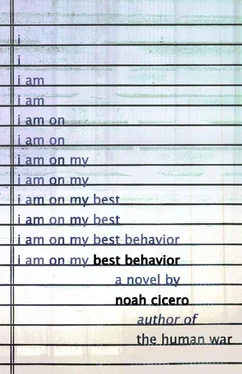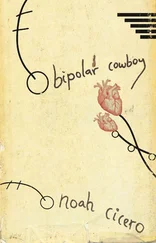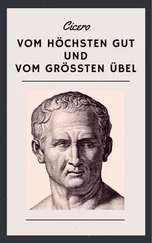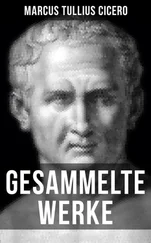Hu Chin kept talking on his cell phone, trying to arrange a meeting place with the woman who was supposed to be interviewing us. Her name was Margo. No one told me her last name. I didn't want to be interviewed by anyone named Margo. But they notified me it was my destiny. I liked email interviews, the person sent me the questions and I answered them slowly taking my time. Doing things in person, with people, I did not enjoy.
Everyone finished their beers and we left. They told me we had to go to Manhattan, which meant more subway.
We were all on the subway. There were no subways in Youngstown. Getting on a little train underground seemed absurd to me. In Ohio you drive cars and buy gas. No one owns a car in New York City. They don't pay car insurance or buy gas. They buy Metro Cards. Petra sat next to me. We sat close but we didn't kiss or hold hands. We didn't show any physical affection for each other. I was never the type of person that was wild and showed sexual affection in public. I never jumped out of planes or scaled cliff walls. I was boring. I was a little minuscule man that sat in his house and read books. Petra knew that. Why she would enjoy being around such a boring man? It confused me. Petra and I didn't talk on the subway. There was nothing to say. Jason hung on to a pole and said nothing either; he was as confused by the subway as I was. There were people everywhere, none of them speaking to each other. There was no community in New York City. Half of the people in New York City at any given time weren't actually New Yorkers. The only real New Yorker I had encountered on this trip was the little white girl pretending she was Leslie Heaney. Nobody was an actual New Yorker. Nobody on the subway cared about each other. Everyone was a nonhuman machine to each other, each traveling to a destination that didn't matter to other people. It was completely alienating and frustrating as a human to live through such an experience. To be surrounded by so many other people and not to care about any of them. New York was a strange place. Over 8 million people living together in close proximity. Ohio only had 11 million and that was over a much wider space. There were 250,000 in ancient Athens, and ancient Rome at the height of its power had a population of 500,000. The people of Athens and Rome were alienated and emotionally disfigured with much smaller populations. Athens and Rome were much different though: or not really. Instead of slaves titled slaves New York had Mexicans titled cheap labor employees. Instead of disenfranchised workers New York had Harlem, Bushwick and Queens. Instead of drunken symposiums out in the open sunshine, New York had drunken symposiums in bars with expensive liquor. Unlike the ancient cities that grew their food right outside the city walls with slave labor. New York City ships their food in from all over the world and gets all its oil and natural gas from thousands of miles away. Instead of Socrates being a blacksmith, it was an economist named Paul Krugman who graduated from MIT. No one in the city produced anything; everyone was living off the entertainment and finance sectors. You either met someone who worked for a television station, a publisher or magazine, or you met someone who did IT for Morgan Stanley, did accounting for CitiBank, or worked on Wall Street. You met people that walked their dogs, cooked their food at fancy restaurants and cleaned their houses. It was a strange way of life to me. I was from Ohio where there were factories where people worked building products. I grew up around farms that were producing food. There were natural gas wells with people working on them all over the area. There were no offices in Youngstown. Everyone was producing and working to survive. People from Youngstown referred to writers and office workers as people who “sit on their butts.” I was on the subway surrounded by people who “sit on their butts.” I was terribly conflicted about who I was: I could see Amanda's father Charlie working ten hours standing up working a press, pumping out parts sweating in a 120 degree factory in the summer. There was my brother who drove truck twelve hours at a time trying to make money. There were my friends who had done construction and helped build houses with the strength of their bodies. There were all the strippers, landscapers, and dishwashers, all there in my mind, with their strong bodies, working, and struggling for money. There was my father who carried huge cow carcasses from meat lockers to the cutting table, with his arms bulging and his face wincing. There was my mother working in the GM plant for 33 years. The people on the subway were not my people. I felt no hostility towards them. They had grown up somewhere different, with a different set of labor and world views offered to them. They had to take it. I had to take mine. It was our fate.
We got off the subway in Manhattan. It was back to giant buildings and people walking everywhere. We walked around the lower east side looking for a bookstore. Hu Chin had lived in New York City for seven years now and he was leading. I was following behind talking to Jason about writing. John was talking to Petra. They seemed to get along. They were talking. Their mouths were moving — words were coming out — they were sporadically laughing. They seemed happy. I was talking to Jason; we weren't laughing. Jason talked about a vampire story I wrote and how it was cohesive and made sense. How he was surprised that I would write something that made sense. I told him I made sense now. He told me he still didn't make sense so he was writing poetry. I told him he would make sense one day. He said he was unsure that he would ever make sense. I said it would happen. He wasn't sure. I said he would get older and time would pass. Things would, pass and he would realize that things passed. It was all right, but sad. He said things had passed for him. I said more things would pass, but they would take longer to pass and he would be surprised how long it took and that you didn't even notice you were involved in something to begin with. I said that life and people mutate. You don't get more intelligent by getting older. Life doesn't progress. It doesn't start at one point and end up at victory. There was no victory. There were mutations. Little dialectic mutations of things turning into other things over long spans of time. History does not have attention deficit disorder. It is a slow grinding process; everything gradually coming to terms with new things, changing along with them to the point where we don't even notice it. He said 9-11 broke that rule. I said 8 years have passed. We have internalized it now. I said humans weren't fixed. We aren't alone either. We may feel alone at times. But we aren't. We are very dependent upon each other. You might go in your room, listen to sad music and cry while reading a book, but someone is out there supplying the electricity for you to do that; someone is growing, and shipping the food, for you to keep eating, so you can keep being sad. You have to work; you depend on owners, stock markets and all those little dirty stock brokers. You depend on truck drivers, construction workers, and marketers to sell the products that keep your job alive. You depend on doctors and nurses; you depend on schools teaching children. We depend on government even though we enjoy bitching about them; we love police, courts, prisons, laws, lawyers, and legislation. We are a dependent species, at the mercy of each other. I asked him if he had ever studied political statistics. He said no. I told him that what politicians look at are graphs with little dots, boxes and lines everywhere, symbolizing our wants and needs. Humanity is a bunch of particles, mutating endlessly, bouncing into each other, each particle with their own wants and needs. But there are other particles, with the same exact wants and needs, and those particles are the same as you. There are other particles with different wants and needs, and those are the other particles, some particles have this and some have that, and some particles have nothing. And they flow around the charts, going in and out of the boxes, making one bar higher than another, filling up one slice of the pie and making another slice smaller. Yes, you are condemned personally to take responsibility and make something of the life you've been given, but at the same time in the grand scheme of things you're a particle on a graph somewhere, being stared at and studied, with researchers in little offices making critical judgments on what these particles are doing and want. Jason said he felt like a particle. I said worse things have happened. He said that's true.
Читать дальше












